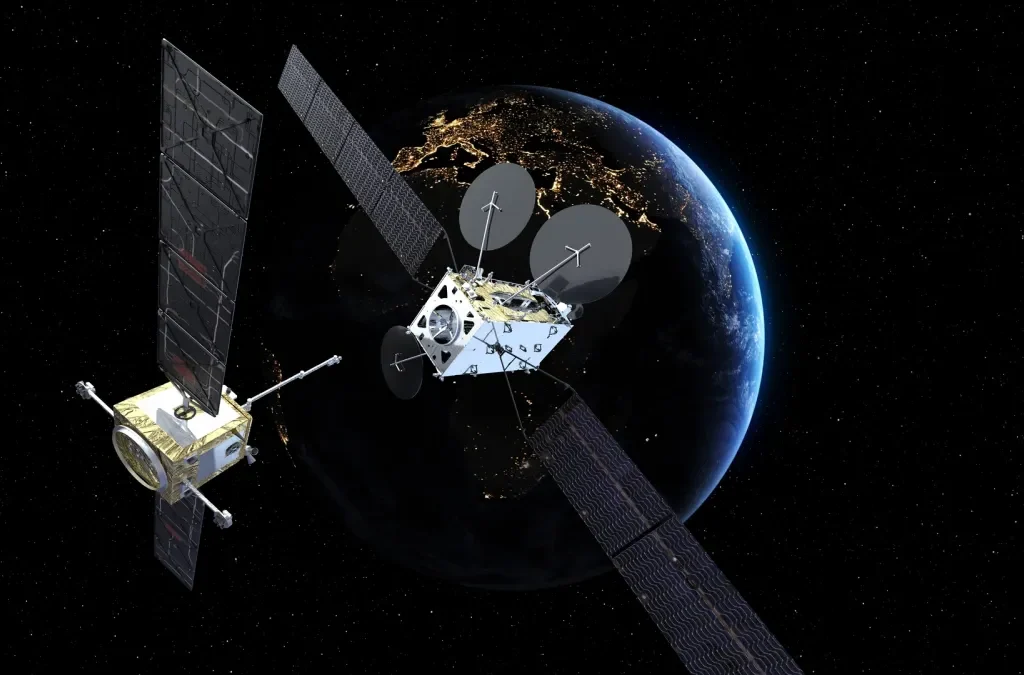France has contracted a consortium led by Thales Alenia Space to develop a mission aimed at capturing and inspecting a small satellite. This demonstration mission is slated for launch towards the end of the decade.
Supported by undisclosed funding from the French space agency CNES and state-owned investment bank Bpifrance, the mission will employ two spacecraft scheduled to launch before the end of 2028. This initiative is part of the European Robotic Orbital Support Services (EROSS) program.
The EROSS program, funded by the European Commission, is designed to test rendezvous and servicing capabilities in low Earth orbit. It involves a one-cubic-meter client satellite and a larger servicer equipped with a robotic arm. Demonstrations include inspection, attitude control takeover, refueling, and payload assembly or exchange.
The DIANE mission, or Démonstration d'Inspection et Amarrage Novatrice Embarquée, will specifically target satellites that have lost attitude and orbit control. Thales Alenia Space project manager Stéphanie Behar-Lafenêtre noted the mission's unique approach. “In the DIANE contract, the servicer uses its cameras (both on the platform and on the robotic arm) to perform a close-range inspection of the satellite,” Behar-Lafenêtre explained via email on July 19. “In operational conditions, the servicer can be used to, in addition to inspection, slow down the spinning of the satellite and move it towards a more appropriate location. This prefigures active debris removal.”
The servicer, currently under development for EROSS, will require a software update to handle a spinning target. This update could be deployed from the ground or while the spacecraft is in orbit. “It is the objective of the first few months of the project to make this kind of decisions,” Behar-Lafenêtre said.
The timeline for DIANE is dependent on the availability of EROSS assets, but the mission could commence as soon as the initial EROSS demonstration concludes. Thales Alenia Space's French division is responsible for the overall DIANE mission. The French engineering firm Magellium Artal Group will provide image processing capabilities for vision-based position determination and local inspection. Germany's DLR aerospace research agency is developing the robotic arm, and the French unit of European space mission integrator Telespazio will organize customer service, including creating a processing and visualization center for inspection data.
Consortium members are still deciding whether to launch the servicer and client spacecraft on the same rocket or separately. The demonstrations are expected to last three to four months, followed by approximately five years of operational service for the robotic spacecraft.
